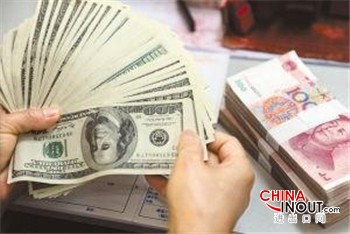北京方面放宽了对中国企业寻求海外融资的限制。此前中国外汇储备在8月份出现创纪录下降。
对入境资金放宽资本管制的决定有助于提振资本流入,目前中国股市大幅下跌和经济不断放缓正在加剧人们对于资本外流的担忧。
根据国家发展和改革委员会(NDRC)在其官网上发布的一份通知,这家中国规划机构已推出新政策,让中国企业更容易获得外币银行贷款,或者发行期限超过一年的人民币债券。
“新政策将简化中国实体发行离岸债券的过程。只要是在批准的外债额度内,它将在债券发行的时机和数量方面给予中国企业灵活性,”穆迪(Moody's)大中华区信用研究部门负责人钟汶权(Ivan Chung)在香港表示。
以往,企业的每一笔交易都需要审批,但现在它们只需要向监管机构备案。
“就像沪港通(Shanghai-Hong Kong Stock Connect)一样,此举是向着让中国金融市场与世界接轨的方向迈出的又一步,”钟汶权表示。
中国的外汇储备在8月份下降2.6%,至 3.557万亿美元,在一个月里下降940亿美元打破了单月下降纪录,原因是中国人民银行(PBoC)抛售了部分储备以支持人民币。
国际清算银行(BIS)数据表明,外资银行对华债权在2015年头三个月萎缩了770亿美元,反映出它们不愿放贷。
“在某个层面上,即使在波动性和不确定性上升之际,中国也没有失去推进市场自由化的意愿,这一点令人鼓舞。它似乎表明,中国领导人明白,市场力量暴露的问题,也可以通过市场力量来解决,”野村证券(Nomura)亚洲首席股票策略师迈克尔錠尔茨(Michael Kurtz)在香港表示。
不过,他表示,鉴于“各方预期人民币将进一步贬值,预期美元借贷成本将不断上涨,而国内借贷成本将不断下降”,尚不清楚中国公司会否急于利用更加开放的海外借款环境。
市场正在等待美联储(Federal Reserve)今日作出是否在近10年来首次提高美元利率的决定。
与此同时,据一些市场参与者向英国《金融时报》反映,中国正考虑在国内大宗商品市场实施针对自动交易的限制。
新的法规将对自动交易商作出定义,要求他们披露身份和资金来源,并限制他们可以在期货市场下单执行的交易数量。(中国进出口网)

Beijing has eased the restrictions on Chinese companies seeking to raise funds overseas, after a record monthly decline in China’s foreign exchange reserves in August.
The decision to loosen capital controls on inbound funds stands to boost capital inflows at a time when big domestic stock market losses and the slowing Chinese economy are heightening concerns about capital outflows.
China’s planning agency, the National Development and Reform Commission, has made it easier for Chinese companies to obtain foreign currency bank loans or issue renminbi bonds with a term of more than a year, according to a statement on its website.
“The new policy will simplify the process for Chinese entities to issue offshore bonds. It will give Chinese companies flexibility in terms of timing and the amount of bonds issued as long as it is within the approved foreign debt quota,” said Ivan Chung, head of Greater China credit research at Moody’s in Hong Kong.
Previously, companies needed approval for each deal but now they are only required to register with the regulator.
“Like Shanghai-Hong Kong Stock Connect, it is another step forward in integrating the Chinese financial market with the world,” Mr Chung said.
China’s foreign exchange reserves fell 2.6 per cent to $3.557tn in August, a monthly $94bn dro that was the sharpest on record, as the People’s Bank of China sold down some of its stockpile to support the renminbi.
Data from the Bank for International Settlements show that foreign bank claims on China shrank by $77bn in the first three months of 2015, reflecting their reluctance to lend.
“On one level it’s encouraging to see that China has not lost its appetite for pro-market liberalisation, even as volatility and uncertainty have risen. It suggests the leadership understands that problems revealed by market forces can be addressed by market forces as well,” says Michael Kurtz, chief Asia equity strategist at Nomura in Hong Kong.
However, he said it was not clear that Chinese companies would immediately embrace the more open overseas borrowing environment “given expectations for a depreciating renminbi and for rising US dollar borrowing costs versus falling domestic borrowing costs”.
Markets are awaiting a decision from the US Federal Reserve today on whether to raise interest rates for the first time in nearly a decade.
Meanwhile, China is considering implementing restrictions on automated trading in its commodity markets, according to market participants who spoke to the Financial Times.
The new regulations would define automated traders, require their identity and source of funds to be disclosed, and limit the number of trades they could place in the futures markets.











